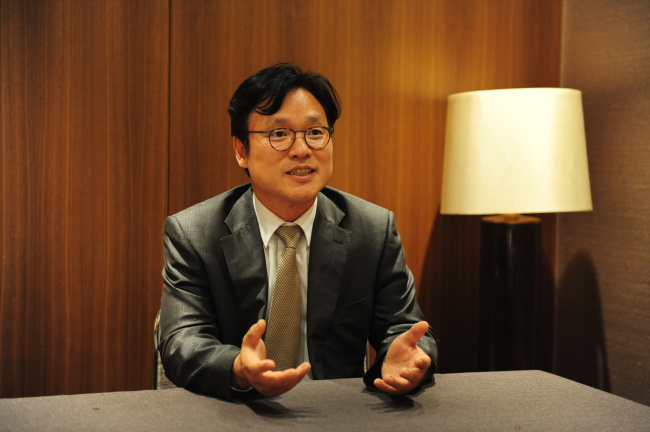As fragmentation and a lack of long-term vision continue to plague Korea’s aid system, the government should rethink its top-down approach and embrace different parts of society in its decision-making process, a leading scholar said.
Sohn Hyuk-sang, a professor at Kyung Hee University’s Graduate School of Public Policy and Civic Engagement, stressed the need for across-the-board cooperation not only within government organizations, but also with businesses and civil society in carrying out a new global development agenda over the next 15 years.
 |
| Sohn Hyuk-sang, a professor at Kyung Hee University’s Graduate School of Public Policy and Civic Engagement (KOICA) |
Set forward in September by 193 U.N. member states, the Sustainable Development Goals touch on growth, environment and other social dimensions, thus making it unfeasible for one agency to take the driver’s seat, he said.
“Whether it be an independent committee, presidential or prime ministerial, or new agency or one that combines existing organizations, there needs to be an institution to cover all the various fronts, and this is impossible without the political will at the very top level,” he said in an interview with The Korea Herald on the sidelines of the Seoul ODA International Conference hosted by the Korea International Cooperation Agency here last week.
Sohn, who also heads the Korea Association of International Development and Cooperation, expressed concerns over the current aid regime, where some state agencies, powered by their financial clout and formidable say in policymaking, push ahead with conflicting targets without a grand vision, or taking into account the voices from academia.
The lopsided structure often leaves Seoul’s policy unaccountable, such as its “prior partner country” strategy and failure to scale up its official development assistance to 0.25 percent of gross national income by 2015. This could in turn hurt the country’s prestige and commitment as an emerging donor, he pointed out.
“We have to crush the structure under which a few government officials dominate the policymaking process,” Sohn said.
“After some 25 years since the country became a donor, it’s time for self-reflection and forge an inclusive partnership with civil society, corporations, universities and foundations.
“Once the understanding of various stakeholders form the foundation, our policy can better embrace universal value, drum up national consensus and ensure long-term execution free from government changes and partisan bickering.”
Though he welcomed Korea’s joining in the China-led Asia Infrastructure Investment Bank, the professor cautioned that the government will have to have “strategic thinking” about how to harness the institution to maximize its own interests.
Given limits in Seoul’s financing and analytical capacity in big infrastructure projects, it needs to expand collaboration with not only China, but also other major economies, as well as international organizations, he added.
“Korea’s strategy should much hinge on that of China, whether China envisions the AIIB as an alternative of the traditional western Bretton Woods institutions such as the IMF and World Bank, which I believe would be unlikely at least until it becomes the so-called ‘G1,’ or as a niche market or a complimentary one between the camps,” Sohn said.
“In the infrastructure market, minimizing risks is key. While boosting our own ability, we should more actively pursue partnerships with those with better capital raising capabilities and guarantee schemes. We can’t miss the opportunities out there ― infrastructure has already become one pillar of development cooperation.”
By Shin Hyon-hee (heeshin@heraldcorp.com)

